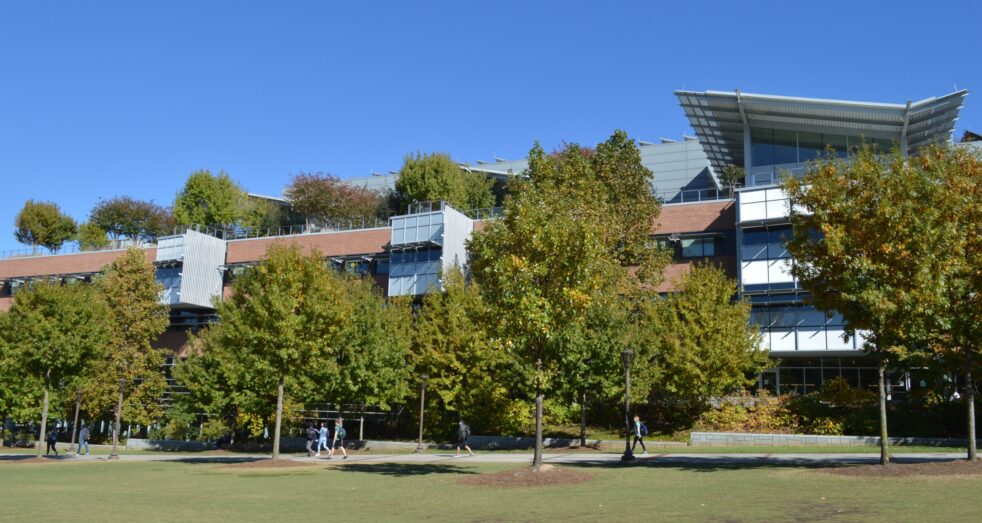In March of 2020, the administration announced the closure of both the Crosland and Clough roofs for the construction and installwation of an architectural piece of art.
Now, nearly two years later, the full reopening of both roofs has been delayed in light of unprecedented issues in starting construction. Facing the indefinite closure of the roofs, many students have called for the reopening of the roofs, or at the very least the Clough roof, until construction begins.
At the Technique, we support the reopening of the Clough rooftop specifically, and while we urge the reopening of the roof, we also recognize the danger the roofs have posed in the past — both as an issue of public safety and a mental health risk.
However, we believe that the reopening of the roof with proper precautions and acknowledgments from the Institution could greatly benefit the student body and aid Georgia Tech in its mission of addressing its mental health crisis.
Prior to its closure last spring, the rooftops, especially the Clough rooftop, served as a central meeting location on campus–a beautiful view of the sunset, a warm study spot on a spring day, or even a relaxing place to host class.
With the closure of the Student Center and Tech’s already lacking assortment of congregation spaces, the shut down of the roofs has exacerbated Tech’s shortage of non-academic spaces for students.
Looking back to previous years, it is easy for many students to recall fond memories of a time and reminisce on time spent with friends and classmates. However, even as we remember better times, it is impossible to separate sentiment and memory of the roofs from the tragic incidents that have occurred there in the past.
The roofs, especially Crosland Tower, have been the source of multiple suicide attempts — some within the span of the same few weeks.
Whether you were in the building when it happened or you weren’t even a student yet, when we look up at the roof, we remember these attempts and the impact they had on the student community.
Buildings hold memories, and Tech’s refusal to acknowledge its very dangerous mental health problem allows its campus to continue to be colored by its failures to support students.
Even in official statements released by administrators, the reason the roof is closed is always cited as “public safety,” with no reference to the devastation that has occurred there.
Deeper than Georgia Tech’s refusal to acknowledge its issues is the Institute’s resistance to meaningful change to its mental health response. Since these attempts, Tech has done little to help its students and address the root cause of these issues — its failing mental health services and its academic culture rooted in stress and pressure. The trauma of a moment lasts generations, and as Tech ignores and hides its issues under art installations, it fails its students, forcing them to relive the experience over and over as nothing is done to fix it, allowing the cycle to repeat.
We urge Tech to finally break the cycle — to acknowledge its failings and work to fix them. Reopening the roofs is the first step towards allowing students to reclaim campus areas and making Tech a more welcoming environment. Even if it is simply letting students hold club meetings or classes on the roof, allowing students on the roof — with proper precautions — is a step towards making the roof more than a testament to tragedy.
However, simply opening the roof isn’t enough. We urge the Institute to also take this as an opportunity to address its issues and work towards finding a solution to the root causes. Even with the addition of art and barriers, the core of the issue remains unsolved as resources, like CARE, remain woefully understaffed and underprepared to deal with the magnitude of the issue.
We believe that the mental health benefit of allowing students to enjoy a new communal space will far outweigh the negative aspects it poses.
As we move forward into the new semester, we believe that it is an important step towards the future to reopen the roofs and to allow students to reclaim a vital part of campus.
